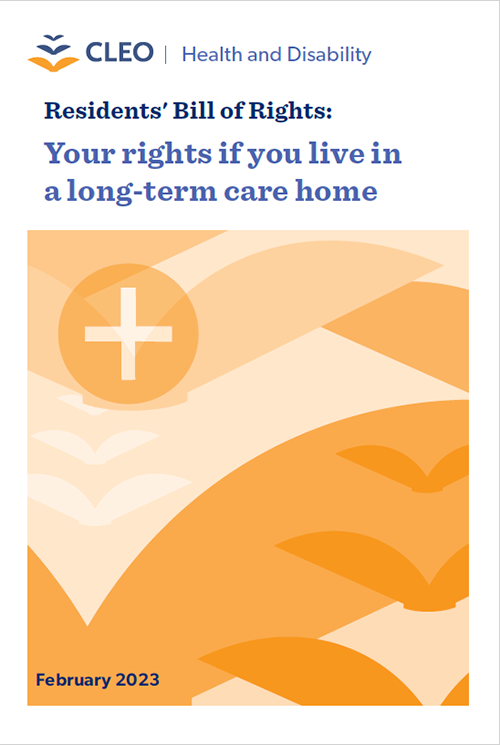Resources
Order publications
You can order CLEO’s publications for free. You can also read them online, along with the other resources listed below. For more legal information, visit our Steps to Justice website.
-

Bill of Rights for home and community care
Ontario's Patient Bill of Rights lists the rights people have when they get home and community care services that the government pays for. This resource explains each right and describes these services.
-

Canada Pension Plan disability benefits
This resource explains the Canada Pension Plan (CPP) disability benefits for workers who can no longer work because of a physical or mental disability. Topics include who can get this benefit, how to apply, other available benefits, and what to do if refused.
-
Complaints and appeals about home and community care services
This resource is for people who get home and community care services that are paid for by the government. It explains the types of complaints people can make, how to make a complaint, what decisions could be made, and how to appeal a decision. This resource is for people who get home and community care services that the government pays for. It discusses how to make a complaint about these services and appeal a decision.
-
HIV testing and reporting to Public Health in Ontario
This resource explains the main ways to get tested for HIV: nominal and anonymous testing. It also discusses how a person can reduce the possibility that Public Health in Ontario finds out they live with HIV.
-
Residents’ Bill of Rights: Your rights if you live in a long‑term care home
In Ontario, long-term care homes must follow a law called the Fixing Long-Term Care Act, 2021, which includes a Residents' Bill of Rights. This resource explains these rights in language that's easy to understand. It lets residents know what they can do if their rights are not being followed and includes a list of places that give legal help and information.




